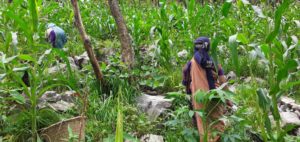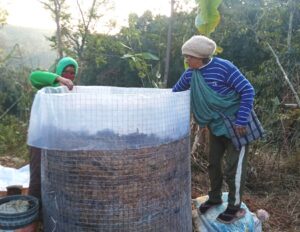NESFAS and its communities have been regarded as guardians of the Indigenous FoodSystems (IFS) for the continued work to promote and conserve the traditional food systems and the agrobiodiversity that supports these systems. Among the many activities that have been devised by the organisation and the partner communities to promote IFS, Agrobiodiversity (ABD) Walks is one activity that has continuously strengthened the transmission of traditional knowledge from the elderly members and community facilitators (CFs) to the younger generations. In these walks, local knowledge holders lead groups of students/youths and introduce them to the various food plants and medicinal plants that are available in the different food production systems. Their knowledge of the seasonality and benefits of the plants and the herbs are also shared with the group who document and catalogue them.
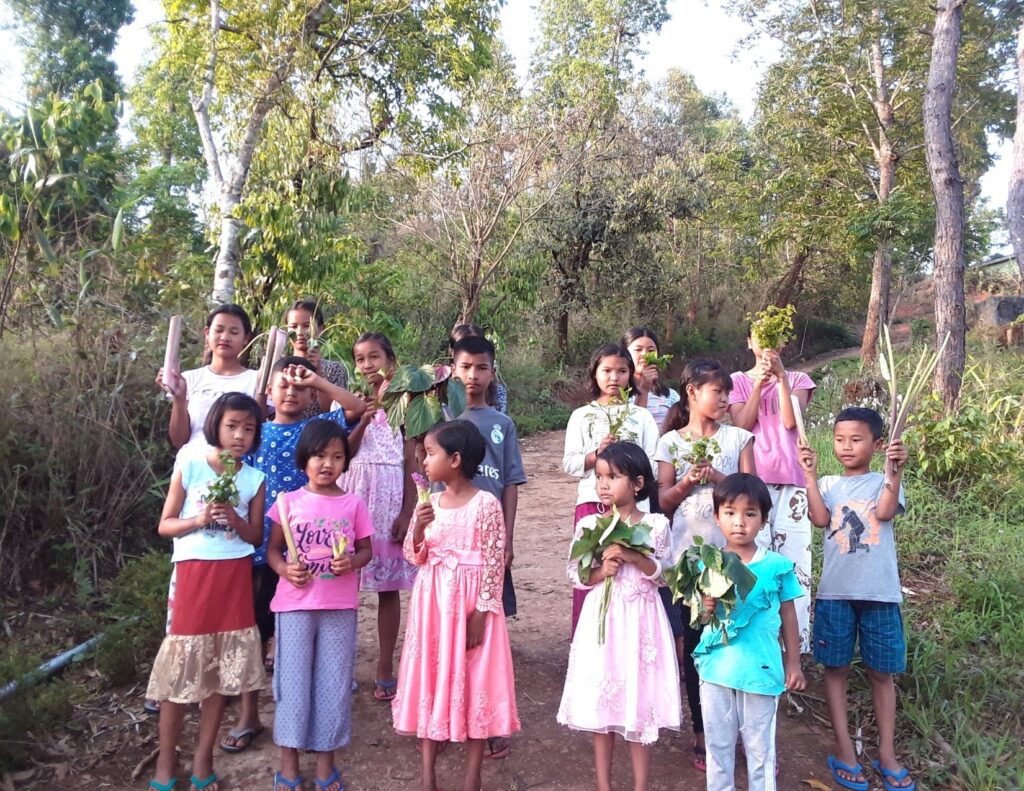
In the months of April and May, 96 ABD walks were conducted in 96 NESFAS partner communities in the presence of the community facilitators (CF), Local Knowledge Holders, ALC members, Community members and the children who actively took part in the Walk. This initiative is part of NESFAS’ present project, “Empowering Indigenous Communities through Agroecology Learning Circles (ALCs) for resilient, integrated, and innovative natural resource management” supported by MBMA and funded by the World Bank.
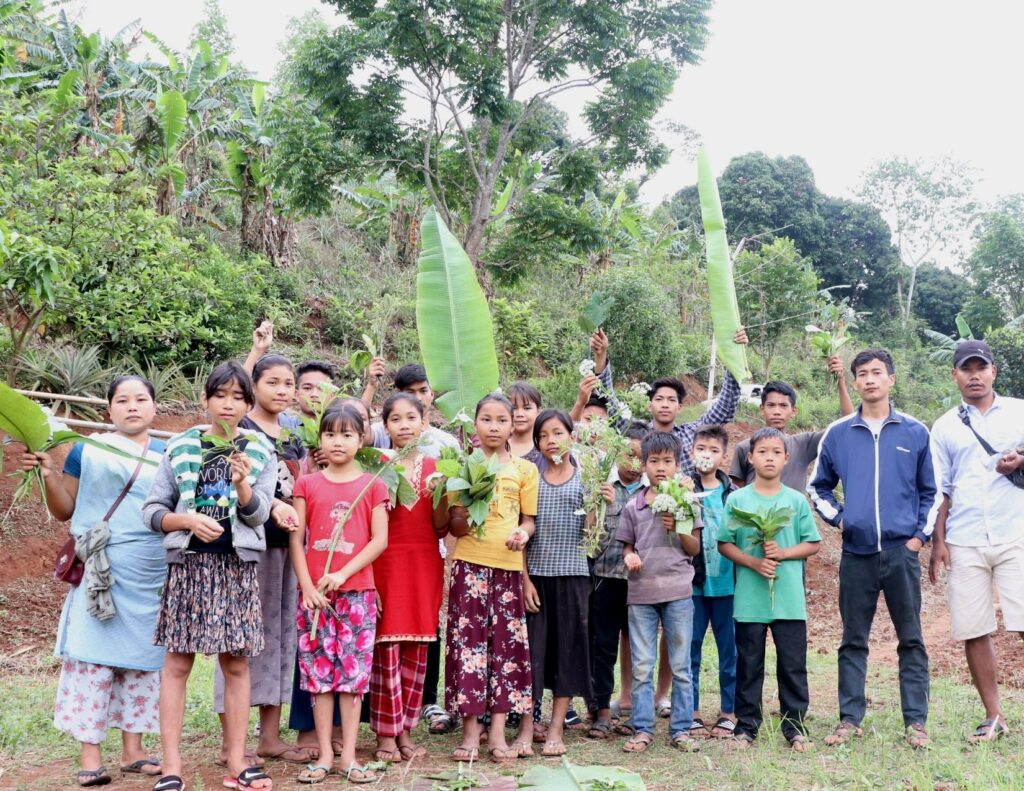
The identification and knowledge dissemination of local food plants, wild edibles and medicinal herbs found in various food production systems namely, jhum fields, bun fields, farming plots, kitchen gardens, paddy fields and forest areas, remain the main purpose of these walks. Some of these plants include sweet potato, banana, mustard leaves, radish, tree tomato, orange sapling, mulberry, squash and many more; unique wild edible plants like the Sohkhia khlaw were also identified during the walks. This essentially facilitates the thirst for knowledge among the young generations of these communities and helps pique their interest in the rich and diverse areas that they belong to as well as care and appreciation for Mother Nature as a whole. This not only promotes the Indigenous Food Systems but also strengthens the transmission of traditional knowledge from the elders to the younger generations. Some Local Knowledge Holders also share interesting stories about some of the food plants they come across, and others also impart valuable and local nutritive information from their own traditional knowledge.
“Walking to the forest to identify and collect food plants, and narrating the stories to the children are useful for sharing the knowledge of our local biodiversity” – Kong Aiolian Kharsyntiew, farmer from Mawhiang
This initiative turned out to be a major success and participants were able to understand their regional culture better; for example, in Mawhiang, East Khasi Hills, 32 food plants (24 cultivated crops, 8 wild edible plants and 18 medicinal plants) were identified and documented; whereas in Mukhap community in West Jaintia Hills, they were able to document 58 food plants from kitchen gardens, 4 from paddy fields, 35 wild edibles from the forest, 4 from terrace farms and 23 medicinal herbs.
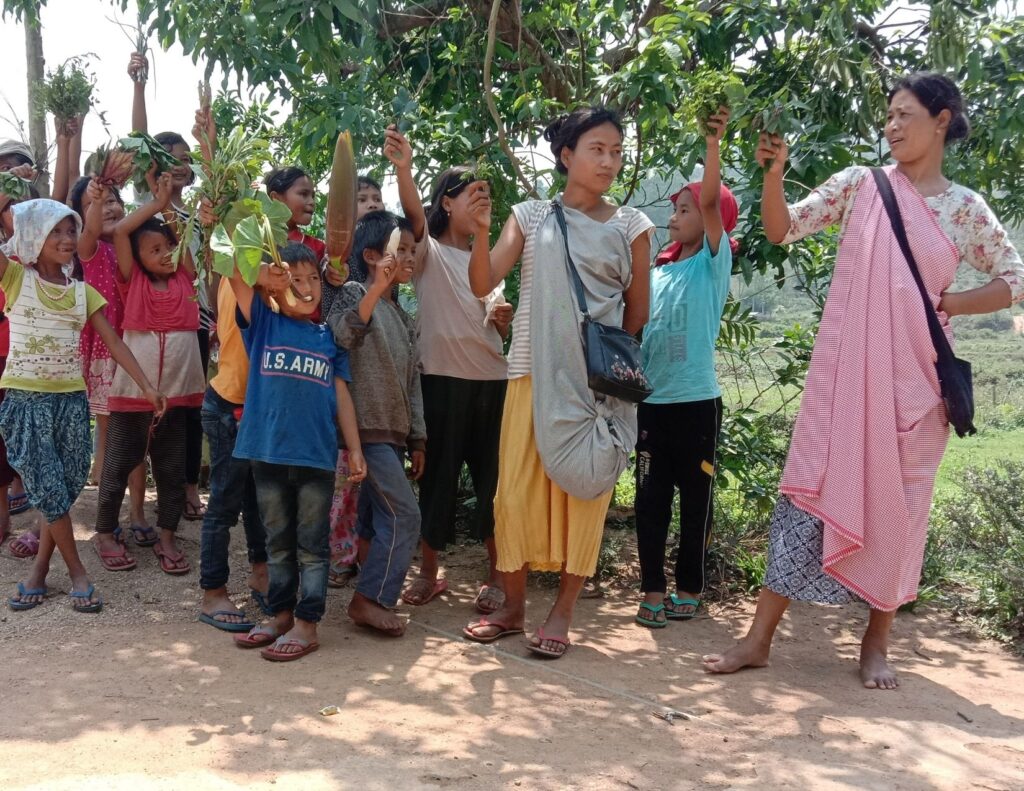
The Community Facilitators (CF) will follow up with the children on the knowledge that they acquired through these ABD walks and continue to do so during the other seasons to document the availability of other seasonal plants.
“We should organize ABD walks from time to time and should take children along to the forest and I am willing to teach them the names and the use of various food plants available in the forest especially about the medicinal plants” – Jina Nongkhlaw, farmer from Laitthemlangsah
“From April to May spending money on buying foods from the market is less, since many food plants and wild edibles can be sourced from the forest” – Wanklis Pale farmer from Iongliwit, Jaintia Hills

